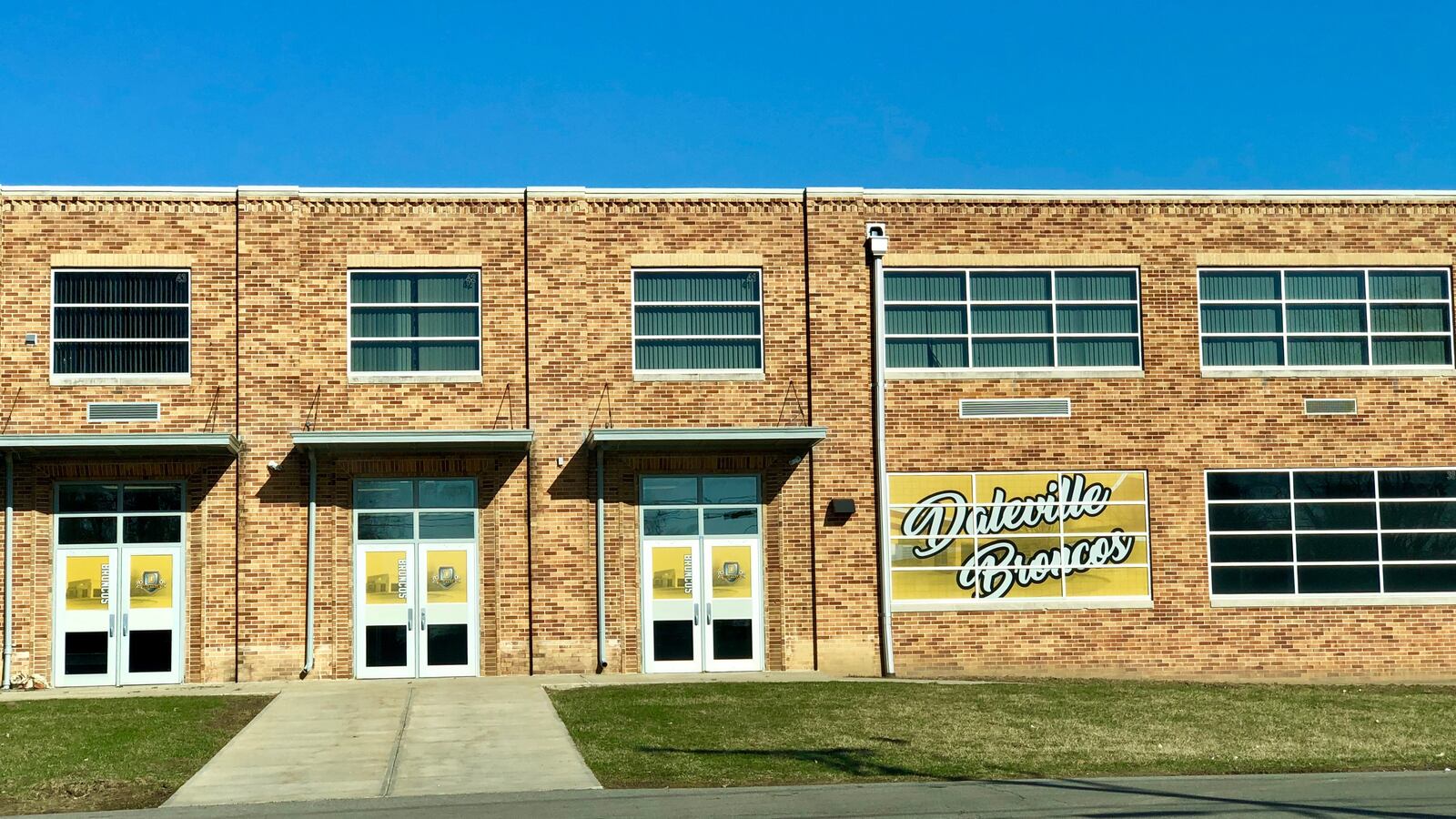The authorizer of two virtual schools accused of mismanaging state tests, student enrollment, and special education services voted Monday night to give the schools more time to defend themselves — even after they missed a key deadline for submitting a written explanation.
The Daleville public school board, the authorizer for Indiana Virtual School and Indiana Virtual Pathways Academy, voted unanimously to push back the public hearing about whether the schools’ charters should be revoked, which could lead to their closure.
Read: How lax oversight and rapid growth fueled dismal results for Indiana’s virtual charter schools
The schools were supposed to have a hearing next Monday to present their cases, but the hearing is now scheduled for June 19 — a delay that extends uncertainty for students’ families by three months. The vote — added to the meeting agenda at the last minute — comes after the schools also missed a deadline last week to respond in writing to Daleville about the allegations. The schools’ lawyer said they did not submit anything to Daleville. The board voted to set the new deadline for a written response to June 5.
Daleville Superintendent Paul Garrison said he requested the delay because the schools had “a lot of questions and we’re seeking to answer them. This gives us time to communicate a little more fully.”
“We’re following our attorney’s advice,” Garrison added, referring other questions to a spokeswoman. “We honestly don’t know what we’re going to see from them at this point. We just want to make sure they’re able to prepare.”
Gordon Hendry, the state board of education member who launched a committee to review virtual schools last year, said he was withholding judgment about the delay until he heard more information, but he is concerned about its impact on families who are trying to make decisions about where to educate their children.
“We’re not talking about a few students here, we’re talking about literally thousands of students,” Hendry said. “I think it puts the students on a tighter timeline as they evaluate their options for the fall school year.”
Last month, Garrison recommended starting the process of revoking the schools’ charters after unveiling a slew of troubling findings, including that 1,563 students enrolled at Indiana Virtual Pathways Academy last spring were not signed up for any classes.
The schools have disputed Daleville’s allegations, saying data used in the report was inaccurate, but they haven’t provided specifics. The schools enroll more than 6,000 students and have collected tens of millions of dollars in state funding. There were no representatives from the virtual schools at the meeting, nor any students or parents.
A spokeswoman for Indiana Virtual School and its sister school said Monday night that the schools stand by a statement they made after Daleville presented its allegations last month.
“Indiana Virtual School and Indiana Virtual Pathways Academy believe there is an opportunity to improve and move forward to ensure the future of virtual education,” the emailed statement said. “The data presented to the public by the authorizer was inaccurate and incomplete. We look forward to setting the record straight and, more importantly, continuing to provide educational opportunities for thousands of Hoosier students.”
If Daleville ultimately votes to revoke the schools’ charters, the schools would have a year from that date to shut down or find another authorizer, though Indiana law makes it tough for low-rated schools to change oversight agencies. The state board would also have to sign off if a new authorizer wanted to oversee the virtual schools.
News of the allegations against the schools prompted outrage from state officials and lawmakers. Virtual schools have become a hot topic during this year’s legislative session as lawmakers seek to add regulations to the schools, which have academic results far below state averages.
Some of the most troubling allegations against Indiana Virtual School and its sister school:
- More than 2,000 Indiana Virtual School students enrolled all year did not earn credits each semester in the 2016-17 school year, data showed. Nearly 500 students had not been assigned to any courses throughout the entire year.
- The schools also failed to properly accommodate students with disabilities or file required audits in recent years.
Daleville’s vote to extend the revocation timeline comes as lawmakers are seeking to strip the district of its power to oversee charter schools, amid doubts the small rural district can do so effectively. Daleville, which has 961 students in its traditional schools, is the only public district in Indiana that authorizes full-time virtual charter schools. It received $1 million in state funds in 2017 for overseeing the schools.
In the past five years, Indiana Virtual School and Indiana Virtual Pathways Academy have been rated poorly by the state and marked as consistently low-performing. Both have posted single-digit graduation rates and have few students passing state exams. Indiana Virtual School has received three consecutive F grades from the state, one shy of the number needed for state intervention.
A 2017 Chalkbeat investigation also revealed that Indiana Virtual School was charged millions of dollars by its founder’s company in management fees and rent at the same time the founder acted as school board president, which experts said raised concerns over conflicts of interest.

